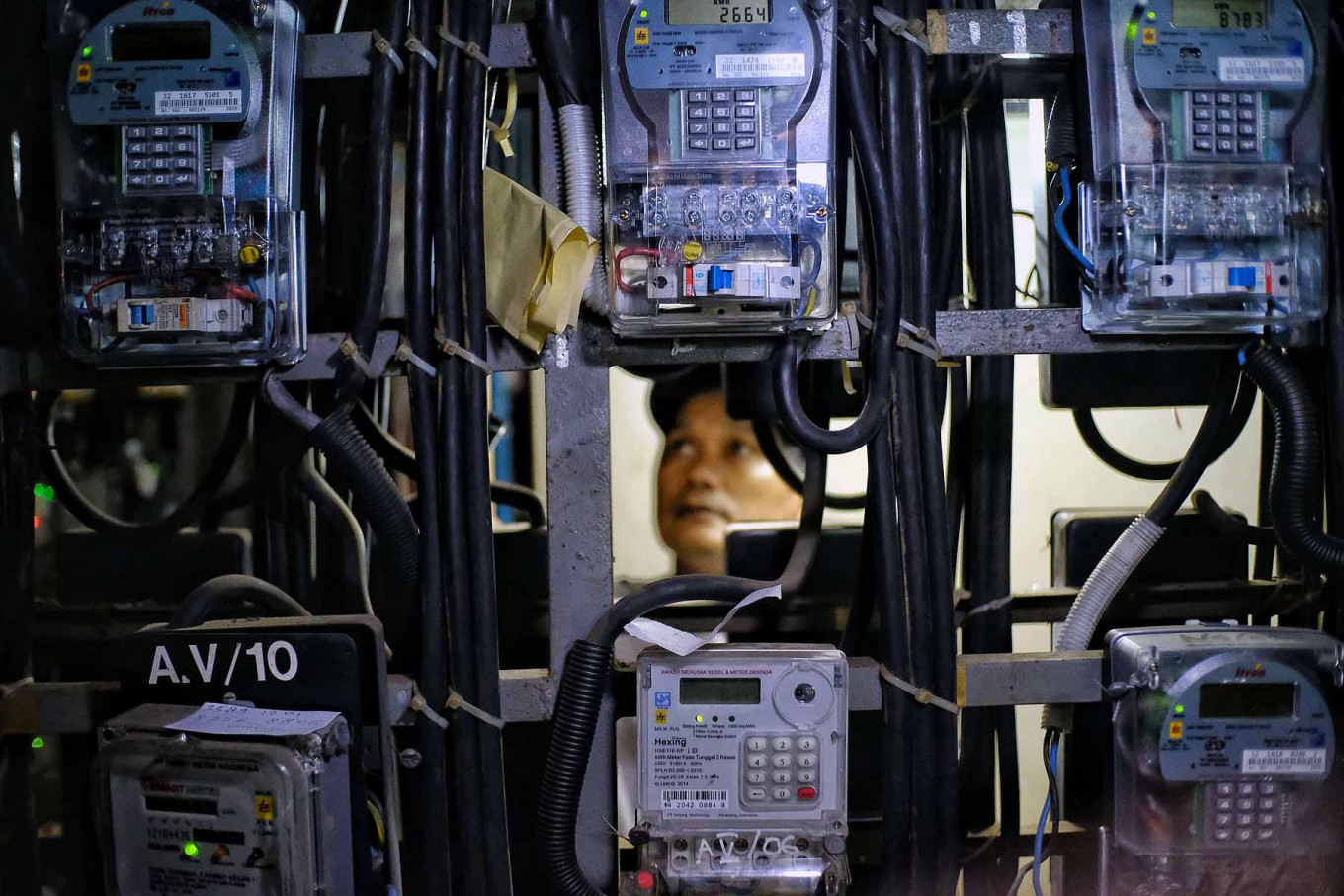Popular Reads
Top Results
Can't find what you're looking for?
View all search resultsPopular Reads
Top Results
Can't find what you're looking for?
View all search resultsPLN to temporarily cut electricity rates for low-power homes, businesses
Under the order, PLN will cut its electricity rate, which is expressed in rupiah per kilowatt hour (Rp/KwH), by 1.5 percent.
Change text size
Gift Premium Articles
to Anyone
T
he government has ordered state-owned electricity company PLN to lower the electricity rates for all homes and certain businesses to boost the pandemic-hit economy amid low fuel prices.
Under the order, PLN will cut its electricity rate, which is expressed in rupiah per kilowatt hour (Rp/KwH), by 1.5 percent. The price is down to Rp 1,444.7 per KwH (9 US cents) between October and December this year, from the previous Rp 1,467 per KwH.
PLN spokesman Agung Murdifi said on Wednesday the cut “gave room for low-power customers to use more electricity in boosting economic and everyday activity”.
“Please enjoy the lower bills.”
The lower rate applies to all homes above the 900 volt ampere (VA) category, businesses between the 6,600VA and 200kVA category and to all public street lights. All these categories fall within the "low power range" under prevailing regulations.
PLN’s rate cut is a modest silver lining for consumers following the collapse of global energy demand as COVID-19 depresses economic activities and household purchasing power.
Domestic electricity demand this year is expected to fall by 6.35 percent from last year as businesses and industries close down, according to the Energy and Mineral Resources Ministry.
Read also: 2020 power usage expected to fall by 6 percent as business slumps
Due to weak demand, Indonesia — a country primarily reliant on coal-fired power plants (PLTU) — saw its benchmark coal price (HBA) drop to US$49.42 per ton in September, the lowest since at least 2009.
Weak numbers in terms of coal prices, crude oil prices, inflation and the rupiah exchange rate were all reasons for the energy minister to order PLN to cut electricity rates on Aug 31, said the ministry on Tuesday.
Ministry spokesman Agung Pribadi said he expected the new policy to “maintain the people’s purchasing power and support economic stability during this pandemic”.
However, the tariff cut is too little too late, said the Indonesian Consumers Foundation (YLKI), an organization that has been helping homeowners navigate various electricity-related issues during the pandemic.
“It's actually rather late because we have felt the pandemic’s impact since five months ago,” said YLKI secretary Agus Suyanto to The Jakarta Post on Wednesday. “But it still deserves appreciation as any amount, under such conditions, helps.”
YLKI has been advocating for an electricity relief scheme for homes above the 900VA category since April, arguing that such homes, while not living in poverty, were vulnerable to falling into poverty during the pandemic.
He urged the ministry to raise the discount by Rp 100 per KwH for homes within the 1,300VA category.
The government previously introduced three other electricity relief schemes to help the country’s poorest homes and stimulate economic recovery. Such incentives include waiving power bills for homes and businesses in the 450VA category.
The three earlier incentives differ from the electricity rate adjustment as the former involves the government paying $1 billion to PLN in covering the relief costs.
Read also: Govt to spend $1b on electricity fee relief for households, businesses amid pandemic
The tariff adjustment will also add to PLN’s financial strain as the company saw its profit nosedive by 96.5 percent to Rp 251.6 billion in the January-June period, due to a combination of a weak rupiah exchange rate and limited income.










